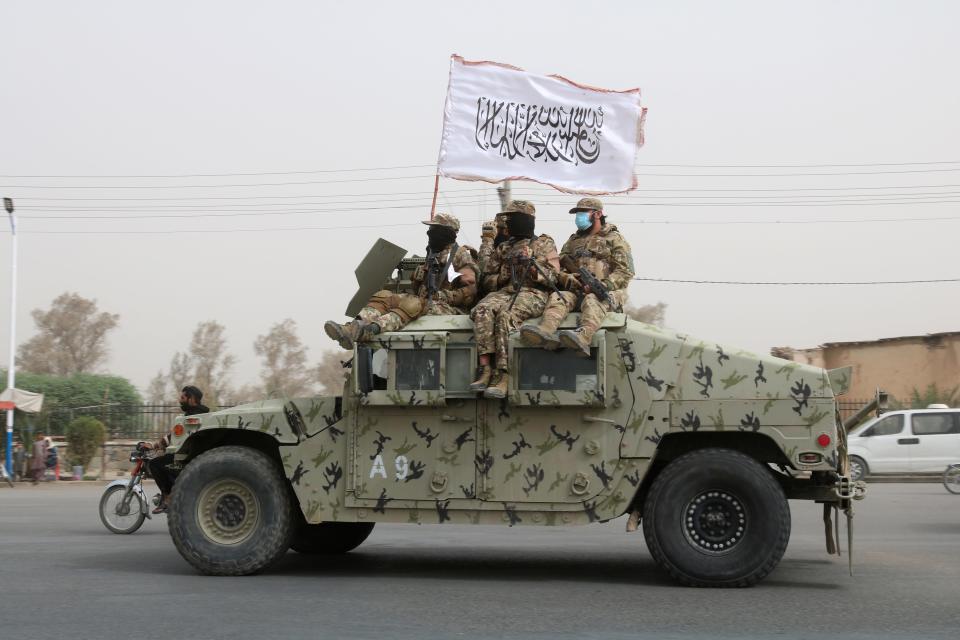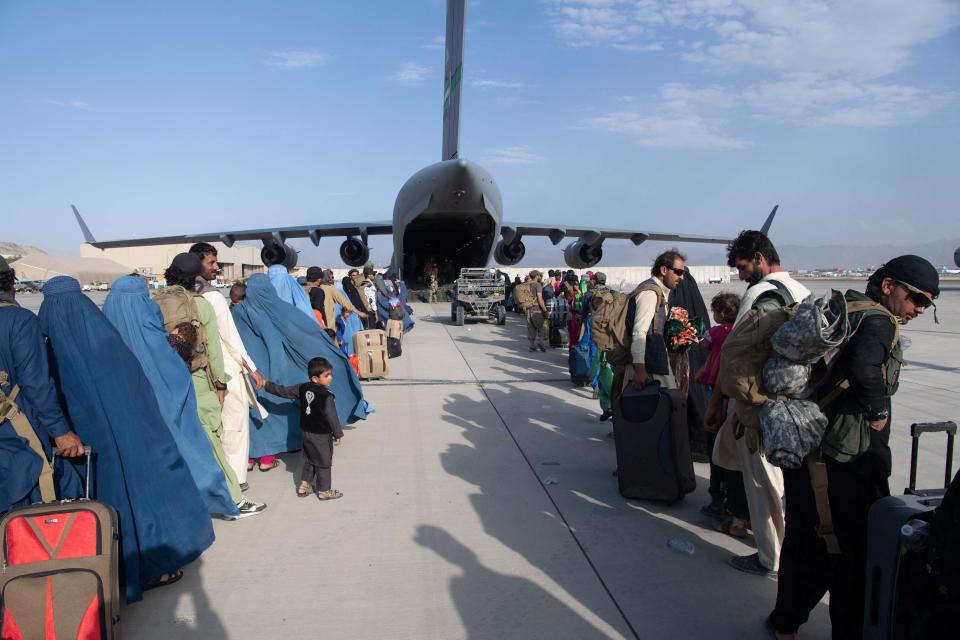Afghanistan evacuation was 'too slow and too late,' ex-military officials tell Congress
WASHINGTON ? Two retired senior military officials told Congress that poor planning and an unreliable ally contributed to the chaotic, deadly retreat from Afghanistan that Republicans have sought to pin on the Biden administration.
“The fundamental mistake, the fundamental flaw was the timing of the State Department,” retired Gen. Mark Milley, former chair of the Joint Chiefs of Staff, testified Tuesday. “That was too slow and too late.”
Milley and former Gen. Kenneth McKenzie, who led U.S. Central Command, had oversight of the final days of the two-decade U.S. presence in Afghanistan. An attack during the frenzied rush to flee the country and its hard-line Taliban rulers killed 13 U.S. troops and at least 170 Afghan civilians.
More: Man yelling 'Remember Abbey Gate' interrupts State of the Union: Who was the protester?
Rep. Michael McCaul, R-Texas, chair of the House Foreign Affairs Committee, said the retreat under fire had shredded America's credibility and reputation.
“That damage will last for generations," McCaul said.

'Strategic failure,' Milley says
In September 2021, Milley told the Senate that Pentagon officials had recommended maintaining a force of 2,500 U.S. troops in Afghanistan and that they had predicted the Afghan government would collapse if American forces were withdrawn.
Milley called the evacuation from Afghanistan, in which more than 120,000 Afghans were flown out, a "logistical success but a strategic failure."
On Tuesday, he acknowledged the presence at the hearing of families who had lost troops in Afghanistan and reiterated that the withdrawal was a strategic failure, but he praised the performance of troops who evacuated U.S. and Afghan civilians.
More: Gen. Milley says military doesn't answer to 'wannabe dictator' in apparent rebuke of Trump

No Afghan Zelenskyy
McKenzie said policy decisions, not the performance of troops on the ground, resulted in the the loss of 13 troops during the evacuation.
Milley and McKenzie said the failure of the State Department to order the evacuation sooner and to plan for it contributed to the chaos in Kabul in August 2021.
In July, the State Department issued a report that faulted both the Biden and Trump administrations for failing to sufficiently plan for "worst-case scenarios" before the withdrawal. Pentagon planning for an evacuation operation had progressed for "some time," but the State Department's ability to participate was "hindered by the fact that it was unclear who in the Department had the lead," the report found.
Milley said the “straw that broke the camel’s back” came in mid-August 2021, when Afghan President Ashraf Ghani fled the country as Taliban forces advanced on the capital. Milley said Afghan forces started shedding their uniforms after Ghani's departure and unfavorably compared him with Ukrainian President Volodymyr Zelenskyy, who chose to stay and oppose Russia's invasion the next year.
President Joe Biden's approval rating slid below 50% for the first time after the withdrawal as Republicans painted the retreat as a sign of his incompetence and weakness in foreign policy. The White House has blamed an agreement between former President Donald Trump's administration and the Taliban that required a U.S. pullout in May 2021 in exchange for a promise not to attack U.S. troops.
Rep. Gregory Meeks, D-N.Y., the committee's ranking member, said the Trump administration deal with the Taliban, known as the Doha Agreement, undercut U.S. leverage in Afghanistan.
Milley told Meeks that the framework for the withdrawal was set by the Doha Agreement.
This article originally appeared on USA TODAY: In Afghanistan evacuation, officials blame chaos on poor planning
